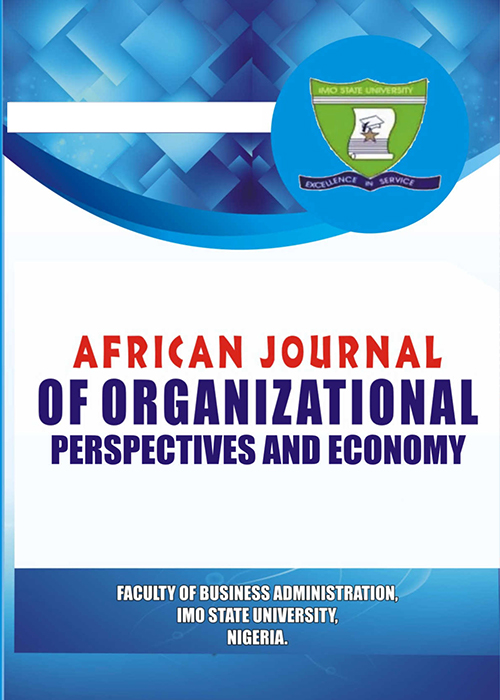2025
Vol. 9, No. 1
Rice (Oryza sativa) is a staple food crop in Anambra State of Nigeria and could be found in the homes of the higher class, the middle-income earner and the poor. The rice farmers in Anambra state in 2024 rain-fed cropping season were aged (about 46 years) and have been in the farming business for more than 20 years and the youths were not willing to take up rice production as a means of livelihood because they consider it an unprofitable enterprise. This study carried out a gross margin analysis of rice production enterprise in Anambra State in the 2024 rain-fed cropping season as a second-best approach to determine the profit level of the enterprise and it applied Monte Carlo Simulation techniques to estimate the expected average gross margin and its distribution for a typical rice farmer in the state. This study used secondary cross-sectional data which was primarily collected in a survey carried out in eight Local Government Areas (LGAs) in the state during the 2024 rain-fed cropping season by the state’s Value Chain Development Programme (VCDP). The survey design was a multistage stratified sampling design. In the first stage, 8 LGAs out of the 21 LGAs in the state were selected for further sampling. The sample size of 543 was apportioned to the selected LGAs with proportionality to their sizes. In each of the selected LGA, systematic sampling was used to select the desired number of farmers from the sampling frame which was the updated listing of all VCDP beneficiary farmers in the LGA. The data was collated and managed with Microsoft excel spread sheet and statistical analysis was carried out using the Statistical Package for the Social Sciences (SPSS). The study computed the frequency of response of categorical variables and the descriptive statistics of the continuous variables. The estimated deterministic value of the gross margin was N 3,201,954.16. On simulating with the monte Carlo technique, after 2000 iterations the resultant expected gross margin was estimated at N 3,236,890 only. The average of the expected gross margin was N3,206,500; the expected minimum was N 767,194; and the expected maximum was N 5,748,844; and the expected class interval was estimated at N 498,165. The constraints identified in the study were: insufficient funds, scarcity and high cost of labour, scarcity and high cost of improved rice seeds, and difficulty of obtaining credit. Some of the recommendations made by the study were: (i) government should subsidize farming inputs like fertilizers and herbicides to reduce the cost burden on farmers and financial institutions should make credit facilities available and affordable to the farmers. (ii) Government should increase the ratio of the number of extension agents to farmers so that the farmers will have more frequent contact with extension agents.
C. C. MOLOKWU, Ph.D, RITA IFUNANYA MOLOKWU, B.Sc. M.Sc.
